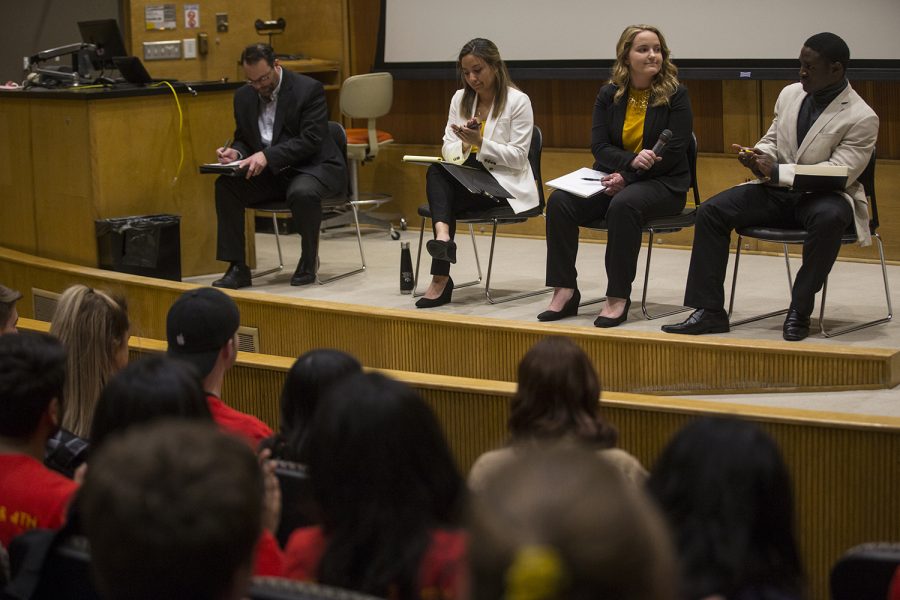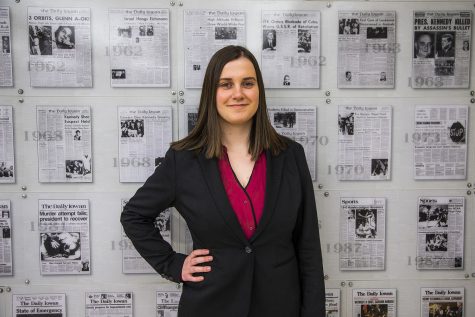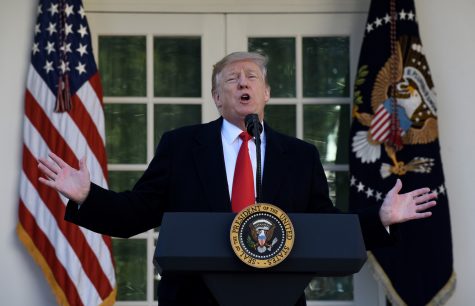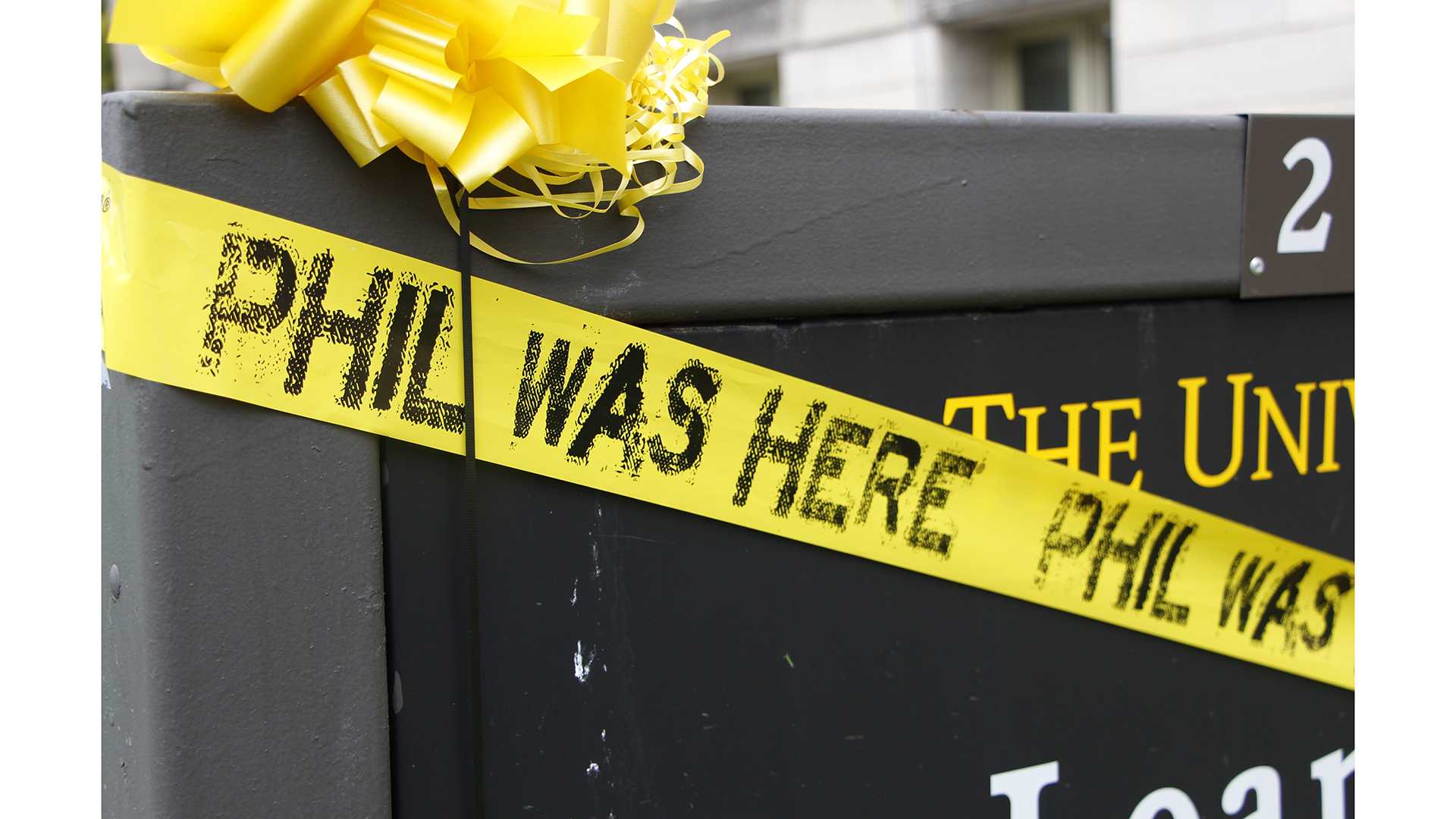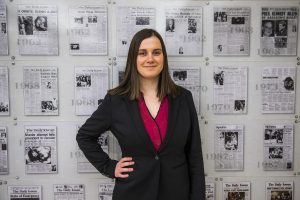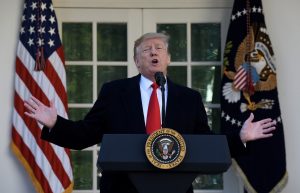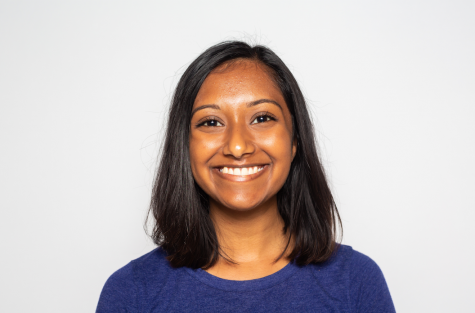Kumar: Represent me, UISG!
The student body government does a poor job ensuring people of color and minority groups are represented.
Presidential candidates (from left) Alexia Sánchez, Noel Mills, Dady Mansaray during the UISG presidential debate in Shambaugh auditorium in the Main Library on Monday, April 1, 2019. Presidential candidates answered a variety of questions involving alcohol harm reduction, sexual assault, and freedom of speech. (Katie Goodale/The Daily Iowan)
April 2, 2019
We’ve all heard it; “a seat at the table”, at this point when discussing diversity and representation it would be a sin not to say it. We need to offer minorities and people of color a “seat at the table” in order to be representative. Regardless of how many seats there are, or how many times we rework the table, simply giving these underrepresented groups a seat doesn’t guarantee representation. This issue is prominent with UISG elections and UISG itself during the year as they work on legislation.
The lack of inclusion and acknowledgment of minority groups on this campus has created a serious problem with representation. Which means issues that seriously affect these groups are not addressed. With UISG elections, the common trend is to include people of color and minorities (in whatever sense they identify as) on the tickets, but then they stop there. For some reason, we see inclusion as being enough. It’s not. We need actually assure their voices are heard in order to actually be representative.
The problem with the way we currently “provide seats at the table” is that underrepresented groups are chalked up solely to that identity. Suddenly they speak for their entire group, and their individual backgrounds and experiences are squashed under the pressure of only being able to be one thing.
RELATED: UISG presidential candidates debate platforms and campus issues
Madhuri Belkale, vice presidential candidate for the Inspire UI party, believes that candidates should be able to showcase everything they bring to the table instead of being reduced to speaking to one identity.
“To me, representation is not just about having a seat at the table. As a person who knows what it’s like to feel like your voice isn’t heard, it’s about using those experiences to constantly seek out and support the voices of others who may feel unseen, and acknowledging and validating all experiences, identities, and backgrounds,” Belkale said.
This isn’t to say we stop making sure opportunities are there for underrepresented groups, but we start actually putting weight behind this action by reevaluating what we do after these groups are included.
Underrepresented groups are touted on party tickets and tokenized in the end. This leads to ineffective governance and sends the message that these groups are only worth the vote but aren’t actually worth advocating for.
Underrepresented groups are touted on party tickets and tokenized in the end. This leads to ineffective governance and sends the message that these groups are only worth the vote but aren’t actually worth advocating for. The tokenization of people of color and minorities should be the worst of the UISG election season, but there are also many barriers in place to people running in the first place.
RELATED: UISG VP candidates hold debate
Adiu Arou, vice presidential candidate for the UI Charge party, finds that the biggest barrier running as a person of color and in general is entering UISG with no connections within.
“Both Dady [Mansaray] and I have ran to be at-large senators and we did not have connections inside UISG. Dady was fortunate enough to have a seat at the table, but I was not given the opportunity to be able to voice my ideas. Instead, many members who were already in UISG have connections with people who apply for at-large senator seats.”
UISG elections and the institute as a whole has many problems, but diverse representation is the biggest and the most important. Student advocates need to actually address issues that affect underrepresented populations. We can do this by making sure we don’t tokenize candidates and that their voices, based on the multiple things they bring to the table, are actually heard.



